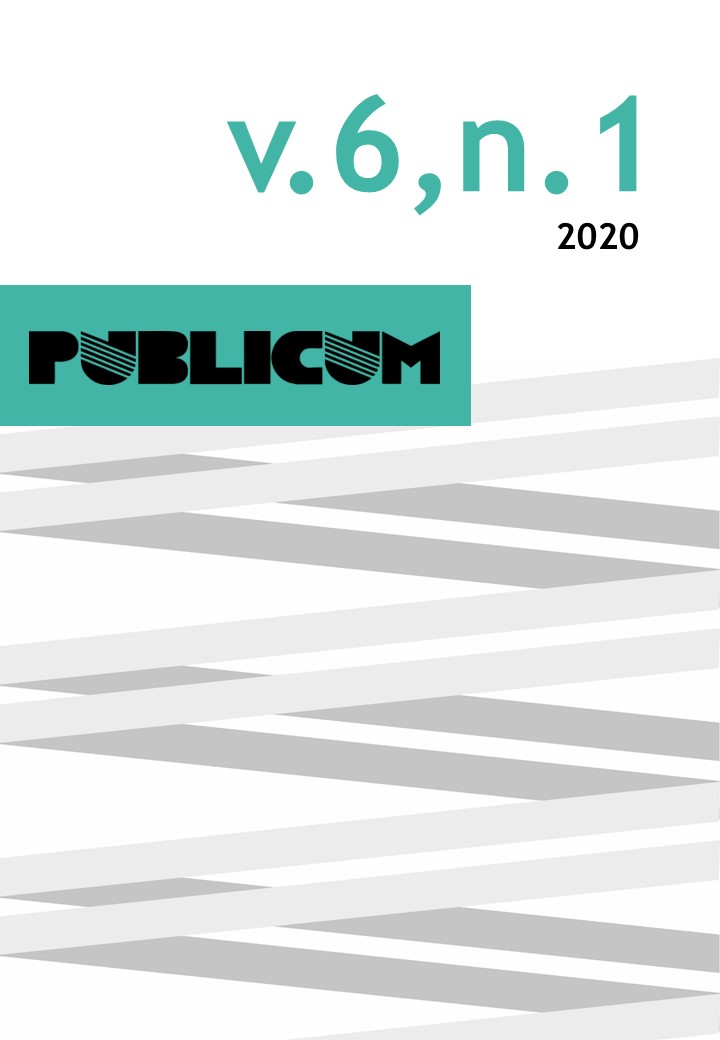A vedação do bis in idem no direito brasileiro: algumas reflexões e uma proposta de interpretação
DOI:
https://doi.org/10.12957/publicum.2020.57571Palabras clave:
vedação do bis in idem, sistemas punitivos penais e não penais, bens jurídicos ultrassensíveisResumen
A aplicação da vedação do bis in idem (“VBI”) foi dificultada quando o direito penal deixou de ser o único sistema punitivo relevante, aumentando a possibilidade de dupla punição pelos mesmos fatos. Outro desafio decorre do enfraquecimento da VBI pela necessidade de proteção reforçada de bens jurídicos sensíveis. Esta dificuldade é ampliada no Brasil com o surgimento de novos sistemas de apuração de responsabilidade que dificilmente podem ser denominados de administrativos (como é o caso da lei de improbidade). Ademais, a Constituição Brasileira não tem texto expresso reconhecendo a VBI, mas tem dispositivos relativos à tutela de bens sensíveis que o afastam. Assim, partindo dos tratados que vinculam o Brasil, analisando a jurisprudência brasileira e internacional sobre a VBI e discutindo a sobreposição de sistemas punitivos destinados à proteção de bens sensíveis, este trabalho tenta chegar a uma definição sobre o conteúdo da VBI no Brasil.Descargas
Publicado
Cómo citar
Número
Sección
Licencia
O autor do trabalho declara conhecer e concordar com as regras a seguir:
1) Realizou o trabalho apresentado à revista, sendo inteiramente responsável pelas ideias e conceitos nele emitidos, que não correspondem, necessariamente, ao ponto de vista dos Editores de Publicum.
2) Obedeceu, na realização do trabalho, os princípios éticos aludidos na política de avaliação da revista[RDN1] .
3) Assume a autoria e a responsabilidade pela obra, declarando que ela não infringe quaisquer direitos de propriedade intelectual de terceiros.
4) Responsabiliza-se, integralmente, por danos de natureza moral ou patrimonial que a veiculação da obra venha a gerar a terceiros.
5) Cede à revista os direitos de reprodução, edição e primeira publicação do trabalho em qualquer meio midiático, em particular sob forma digital, em arquivo eletrônico online na internet.
6) Confere aos Editores o direito de modificar o texto apresentado, sem prejuízo de seu conteúdo, quando necessário para uniformizar a apresentação dos trabalhos e para atender as normas de edição próprias da revista.
7) Concorda com a forma final do trabalho aprovada pela revista.
8) Autoriza a divulgação do trabalho nos canais de comunicação da Faculdade de Direito da UERJ.
9) Concorda com a reprodução de pequenos trechos do trabalho em outras publicações da UERJ.
10) Reconhece que, pela cessão e autorizações acima referidas, não receberá remuneração sob qualquer modalidade, tendo estas o caráter de colaboração científica.
11) Tem ciência de que a publicação do trabalho poderá ser recusada caso não considerada conveniente, por qualquer motivo que seja, sendo que tal recusa não gera responsabilidade e/ou ônus de espécie alguma à revista ou UERJ.
[RDN1]Ver COPE.

Publicum está licenciado com uma Licença Creative Commons Atribuição-NãoComercial 4.0 Internacional.

